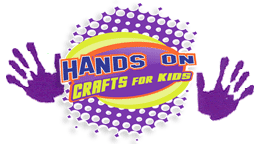 |
||||||
| |
||||||
Show 901
The Bahamas are located in the Atlantic Ocean west of Cuba and Florida. The Bahamas are actually over 700 islands. When Columbus discovered them in 1492, they were the home of the Lucayan Indians. Tourism is the major industry and the low lying islands are ringed by coral reefs and beautiful water. The name Bahama comes from baja mar – or shallow seas and was first named by Columbus. It is home to the clearest water in the world. The Bahamian culture is known for bright colors and lively music – no where can you see this better than in the Junkanoo parade.
901-1 Junkanoo Costume: Junkanoo is held on Dec 26 and January 1. It began centuries ago as a celebration of temporary freedom for slaves who were given days off at Boxing Day. The parade includes themed costumes of crepe paper. Thousands dance through Bay Street, in Nassau. Each costume consists of a headdress, shoulder piece and shirt. Here’s the hands on version of a junkanoo costume.
901-2 Painted Cowbells: Music is an important part of the Junkanoo parade – cowbells are combined with goat skin drums and brass horns to create the rhythmic pattern of the music. In fact the main element of Junkanoo is Goombay music, the Banta word for rhythm. The parade has a unique step called “rushing”; instead of walking it’s a rhythmic procession of two steps forward and one step back all in time to the music. Our next project is a painted cowbell.
901-3 Wooden wind chimes: The Bahamian Island culture is known for music and the soft breezes of this tropical climate. This wood wind chime combines music and bright Bahamian colors and also mimics the beaded hair designs found in the Bahamas. It also highlights an island tradition of creating music from found items.
901-4 Paper Conch: Pronounced "Konk" Queen Conch is the most abundant, versatile, and popular shell of The Bahamas. It is also edible and can be made into salad, fritters, chowder, cracked and scoured conch. The shell is used for decoration, jewelry and crafts and in fact Potter's Cay Dock, located under the Paradise Island bridge, was originally created from discarded shells crushed to become land fill. The Hands on version is made of paper.
Home
| Television | Projects
| Book Order | Helping
Kids | Teachers | Philosophy
E-mail questions about Hands On Crafts for Kids to info@craftsforkids.com
© Copyright 2004 Katherine Stull, Inc.


